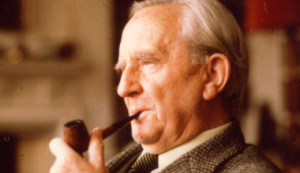 In a recent article from The Artifice, H.M. Bradford addresses the questions of artistic responsibility and authorial identity–two concepts that are surprisingly recent–which have developed mostly in the past few hundred years.
In a recent article from The Artifice, H.M. Bradford addresses the questions of artistic responsibility and authorial identity–two concepts that are surprisingly recent–which have developed mostly in the past few hundred years.
For millennia, when information was passed down through oral tradition without any written documents, “any existence of an author as “original creator” (with important exceptions) ordinarily either wasn’t known or wasn’t important to the ones listening; the oral-aural practice of storytelling was the prevailing feature, and the question of origin was left to tradition,” wrote Bradford.
He also emphasizes the importance of the relationship between the author and the text, and the needs of readers. The readers, in fact, want the authors to be present and consistent, but most importantly attached to the text to enable readers to get a feel of what they were thinking when they were writing.
Professor J.R.R. Tolkien has contributed a lot to this, with his several letters. In fact he interacted often with friends, family, University colleagues, publishers, and fans. He discussed his books, creative processes, doubts and opinions. This correspondence was edited by Humphrey Carpenter in a published collection. But the letters are not the only evidence that he has left, we can still listen to a recording of Tolkien reading the chapter “Riddles in the Dark” from The Hobbit. Bradford points out that around 1:54 Tolkien voices Gollum. Without this priceless document, which certainly inspired Andy Serkis for his extraordinary portrayal of Gollum in Peter Jackson’s trilogy, Gollum’s transposition onto the big screen would probably have been different.
http://youtu.be/7VOdv2RE4jg
The presence of the author is therefore very important for the readers, and this has been facilitated by the advent of social media during the last few years. One of the latest examples we can have is that one of british author J.K. Rowling, who expressed some second thoughts about the relationship between two of the main characters of the Harry Potter saga in a recent interview with The Guardian.
What remains, therefore, is to ask what Professor Tolkien might explain or reveal us if he could take advantage of today’s media.


